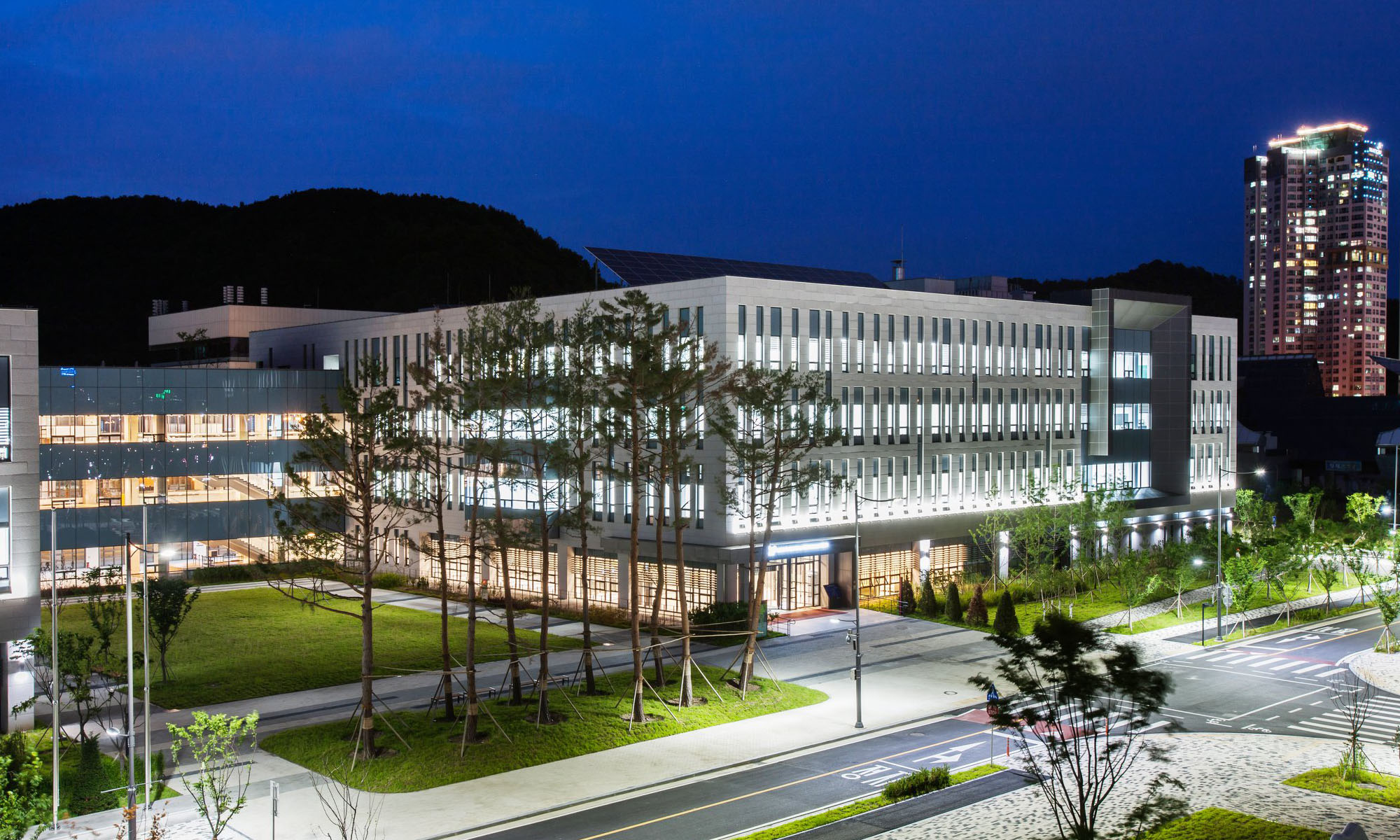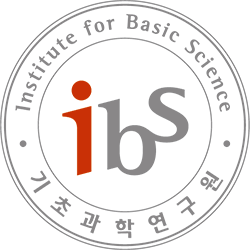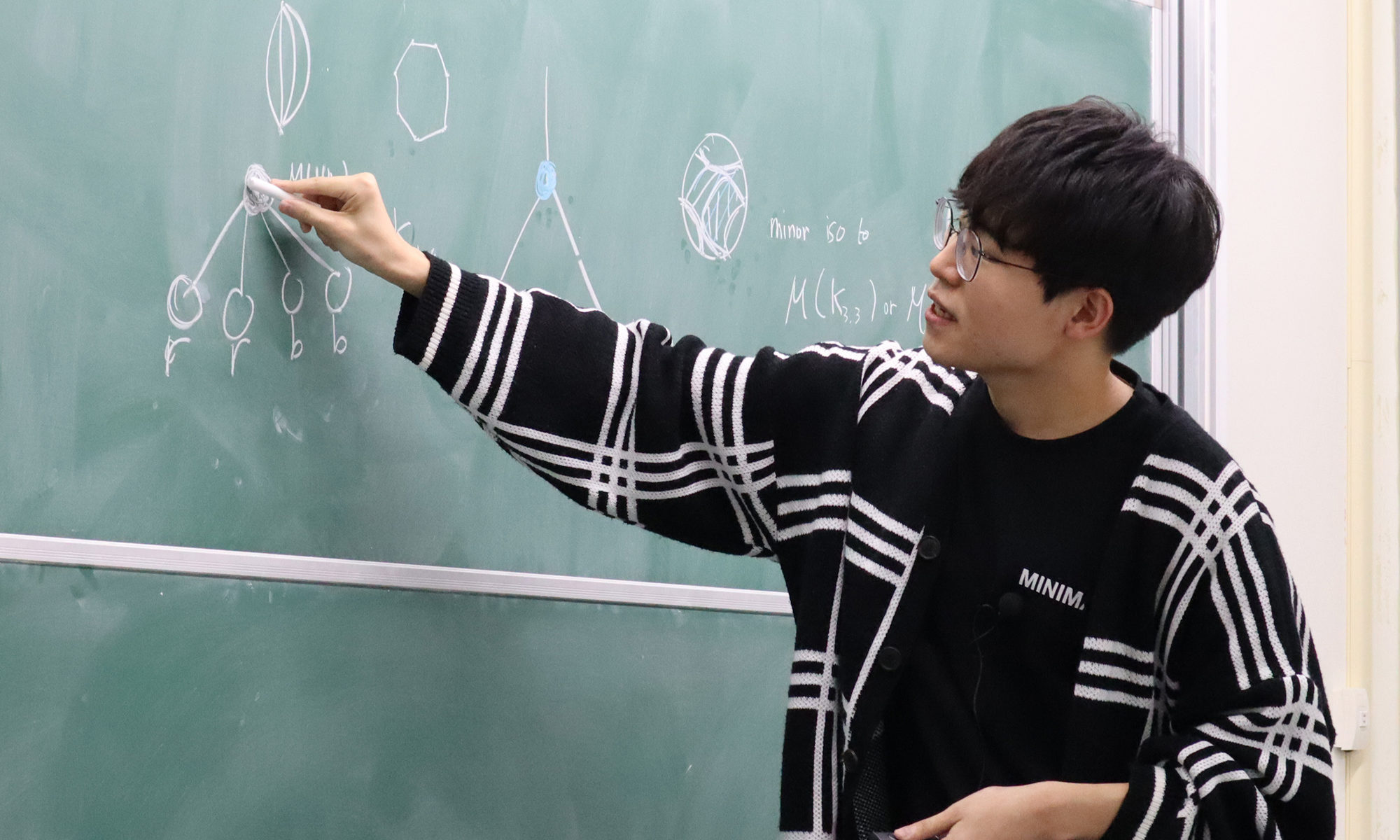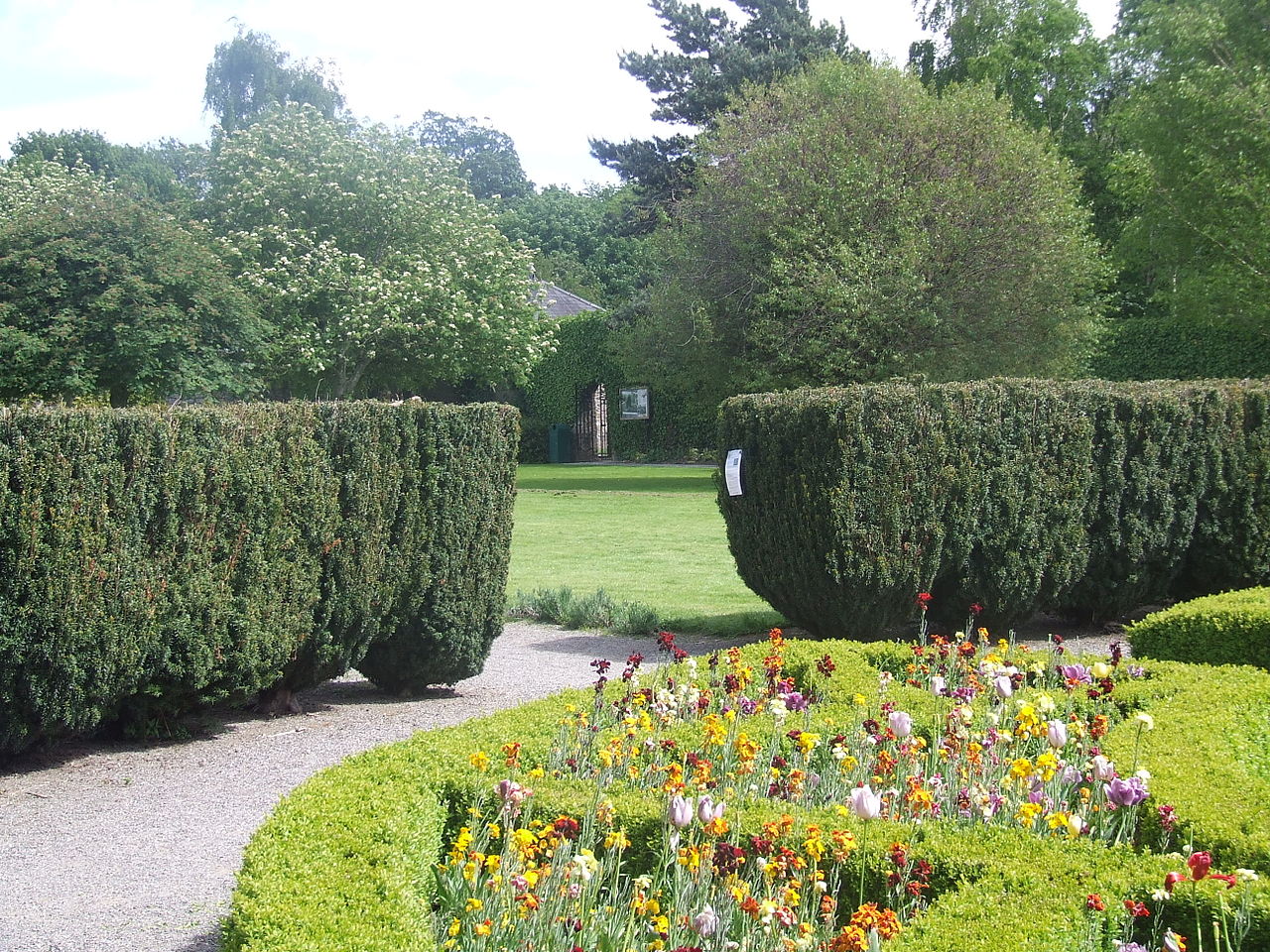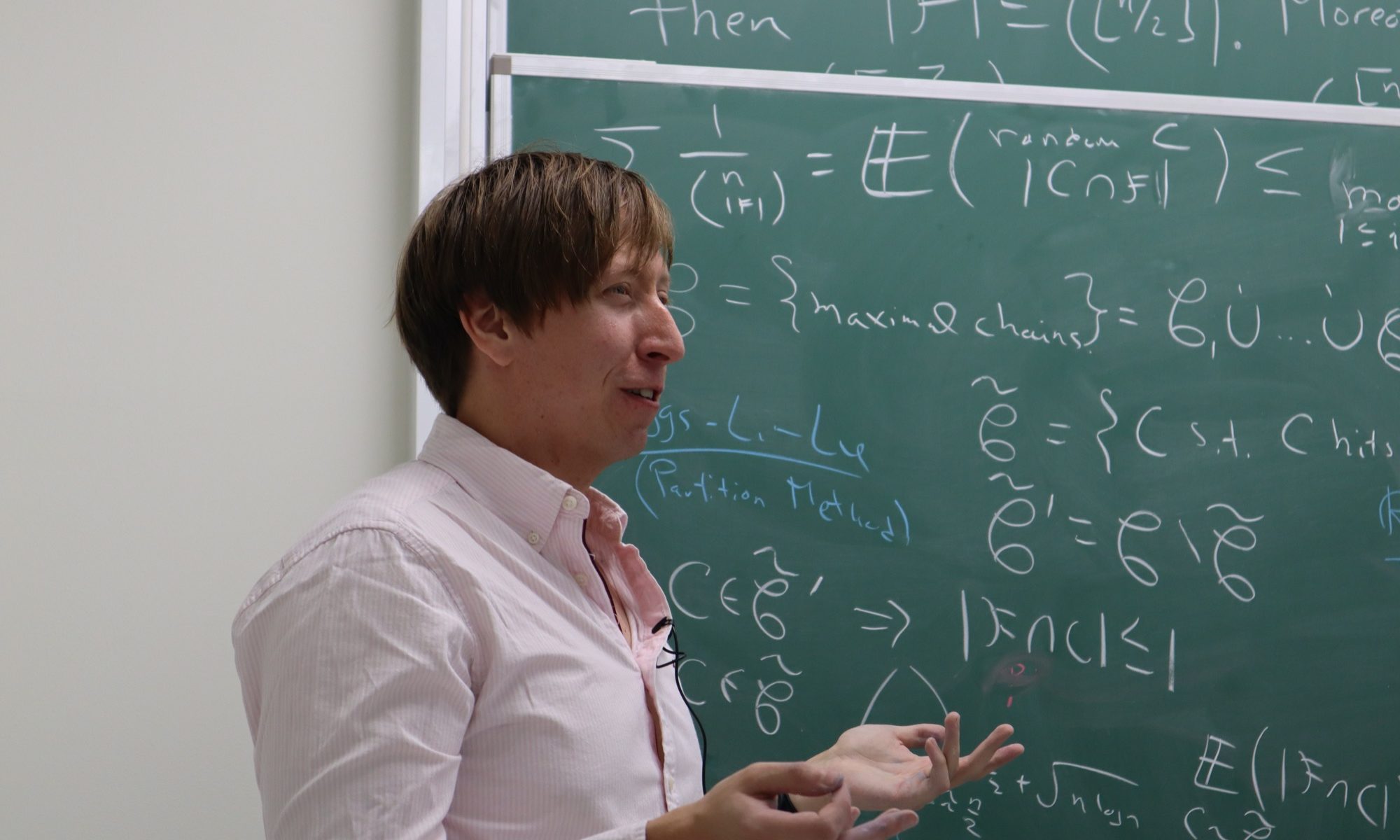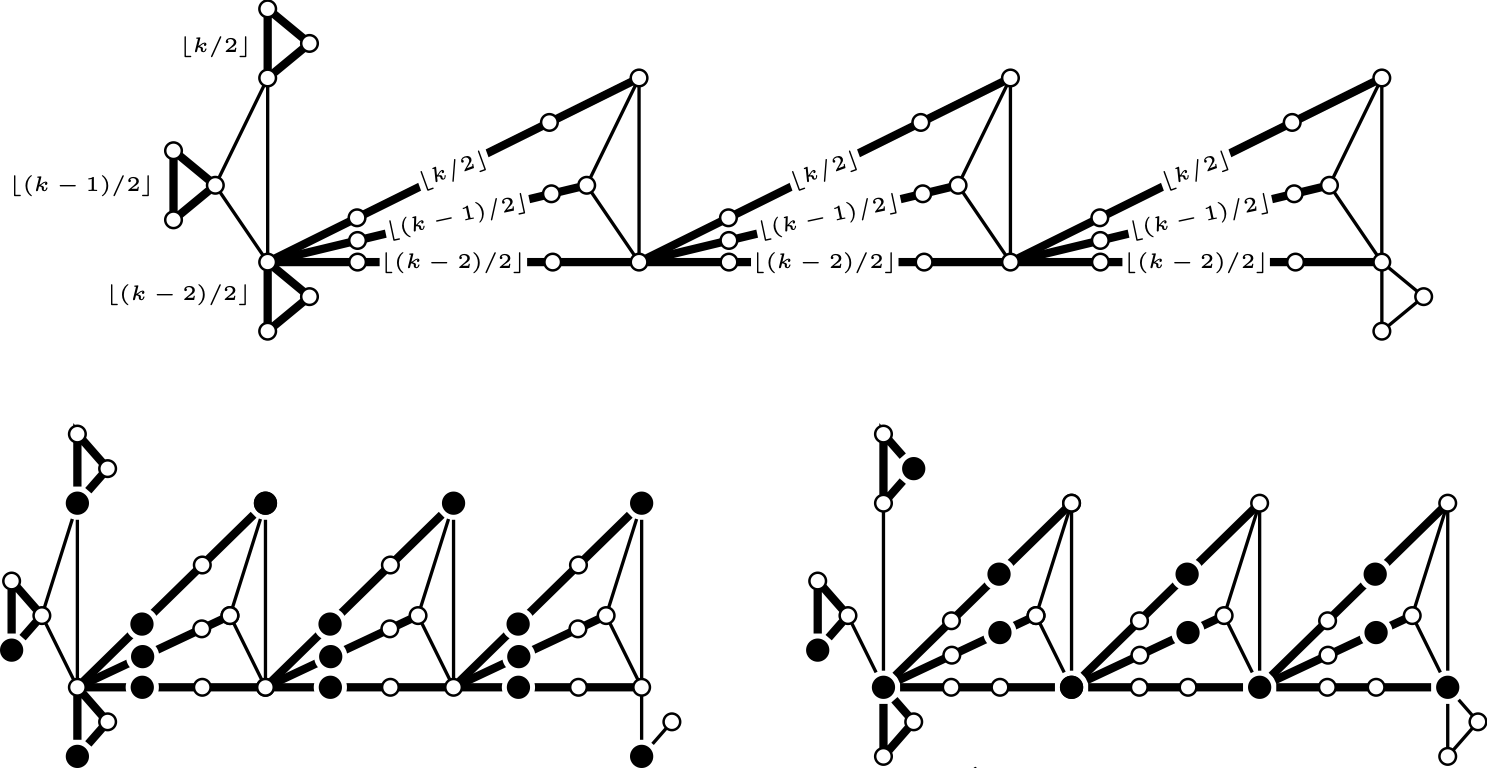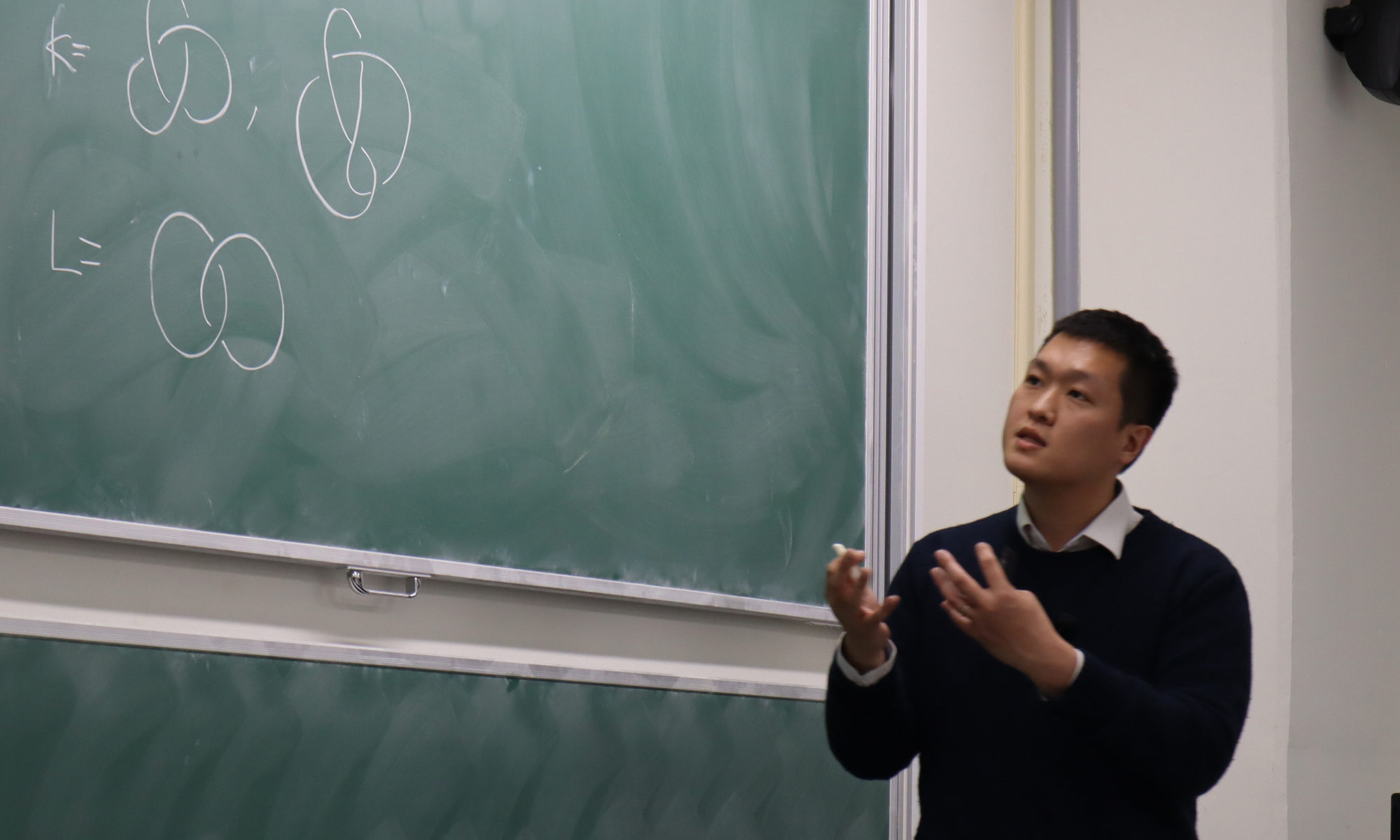On November 24, 2020, Duksang Lee (이덕상) from KAIST and the IBS Discrete Mathematics Group gave a talk on the characterization of matroids whose bases form graphic delta-matroids at the Discrete Math Seminar. The title of his talk was “Characterizing matroids whose bases form graphic delta-matroids“.
Yijia Chen gave an online talk on the shrub-depth of graph classes at the Virtual Discrete Math Colloquium
On November 19, 2020, Yijia Chen (陈翌佳) from Fudan University spoke at the Virtual Discrete Math Colloquium on the shrub-depth of graph classes. The title of his talk is “Graphs of bounded shrub-depth, through a logic lens“.
The first DIMAG Internal workshop was held in Jeonju on November 16-18, 2020
The IBS Discrete Mathematics Group had its first “DIMAG internal workshop” at Jeonju Lahan Hotel located in Jeonju Hanok Village on November 16-18, 2020. Participants include almost all current members of DIMAG and Jaehoon Kim from KAIST, and Hong Liu from University of Warwick. Every participant had a chance to present their current research problems informally.
Meike Hatzel gave a talk on finding a bramble of small order and small size at the Virtual Discrete Math Colloquium
On November 11, 2020, Meike Hatzel from Technische Universität Berlin gave an online talk on the existence of a bramble of small order and small size in a graph of tree-width k at the Virtual Discrete Math Colloquium. The title of her talk was “Constant congestion bramble“.
Casey Tompkins gave a talk on extremal problems on Boolean and linear lattices with forbidden posets at the Discrete Math Seminar
On November 10, 2020, Casey Tompkins from the IBS Discrete Mathematics Group presented a talk on the extremal problems on Boolean and linear lattices with forbidden posets at the Discrete Math Seminar. The title of his talk was “Extremal forbidden poset problems in Boolean and linear lattices“.
2020-2 Call for IBS Young Scientist Fellowship (Due: December 13, 2020)
Note: IBS Discrete Mathematics Group also has an opening for a postdoctoral fellowship.
1. Purpose and Background
With the vision of “Making Discoveries for Humanity and Society,” the Institute for Basic Science (IBS) was founded in 2011 by the Korean government to promote basic science in Korea. To date, IBS has 31 Research Centers and each Center has been yielding outstanding results in various research fields.
The IBS “Young Scientist Fellowship” started in 2016 to play an active role in fostering the next generation of basic science leaders. We believe this Fellowship offers junior scientists opportunities to conduct independent research by utilizing state-of-the-art infrastructure and to grow on the basis of research collaborations with leading researchers.
We hope that the Fellowship serves as a stepping stone for our researchers to mature into leading researchers in basic science.
2. Eligibility
Within 7 years of obtaining a Ph.D. (obtained no earlier than 1 January 2013) or under the age of 40 with a Ph.D. (born no earlier than 1 January 1980)
※ Ph.D. candidates must be conferred with Ph.D. degrees before February 28, 2021.
※ Current IBS researchers are eligible to apply, if they meet the above criteria.
3. Recruiting Research Center and Number of Openings
Discrete Mathematics Group has an opening for 1 YSF.
For other centers and groups, please visit the IBS website https://www.ibs.re.kr/ysf/.
※ The final number of openings may change depending on the circumstances of IBS.
4. Benefit and Condition
- Full-time work and 100% research participation in principle
※ If successful candidates have been also selected for another institute’s research project (e.g. Sejong Science Fellowship, Young Researcher Program of National Research Foundation), their selection may be cancelled. - Annual budget of KRW 150–300 mil. per year, including salary of KRW 60–70 mil. (up to KRW 150 mil. for theoretical fields and up to KRW 300 mil. for experimental fields)
- Appointment for three years with a possible two-year extension depending on the performance review results
※ When current IBS researchers are selected as a Young Scientist Fellow (YSF) of their Center, support will be offered for up to three years. Please refer to the FAQ for details. - After physically relocated to one of the IBS Centers, YSFs will conduct independent research by utilizing research facilities and equipment of the Center. YSFs may organize a small research group.
- Selected YSFs must be appointed and commence their research within 2021.
※ If their appointment and research commencement processes are not completed within 2021, their selection may be cancelled.
5. Selection Process: Three Steps
- Letter of Intent (approx. 3 pages)
- Submission deadline: by December 13, 2020
- Review by directors and evaluation panel members
- Invitation to submit full proposals: by January 15, 2021
- Full Proposal (approx. 10 pages)
- Submission deadline: by February 14, 2021
- Review by directors and evaluation panel members
- Invitation for an on-site interview: by March 2021
- Interview
- On-site Interview and presentation: in March 2021
- Comprehensive review by evaluation panel chairs
- Announcement of YSFs: by late April 2021
6. How to Apply
Apply via the IBS website at http://www.ibs.re.kr/ysf/apply by December 13, 2020 (KST).
7. Inquiries
Talent Acquisition and Development Team at ysf@ibs.re.kr or IBS homepage at https://www.ibs.re.kr/ysf
Daniel Cranston gave a talk on partitioning the vertex set of a graph into an edge-less graph and a forest consisting of small components at the Virtual Discrete Math Colloquium
On November 5, 2020, Daniel Cranston from Virginia Commonwealth University gave a talk on the condition of the maximum average degree for a graph to have a partition of its vertex set into an independent set and a set inducing a forest consisting of components of small size at the Virtual Discrete Math Colloquium. The title of his talk was “Vertex Partitions into an Independent Set and a Forest with Each Component Small“.
Jaeseong Oh (오재성) gave a talk on the condition of ribbon graphs sharing the same delta-matroid at the Discrete Math Seminar
On November 3, 2020, Jaeseong Oh (오재성) from Seoul National University presented his work with Iain Moffatt on the characterization of ribbon graphs having the same delta-matroid. The title of his talk is “A 2-isomorphism theorem for delta-matroids“.
